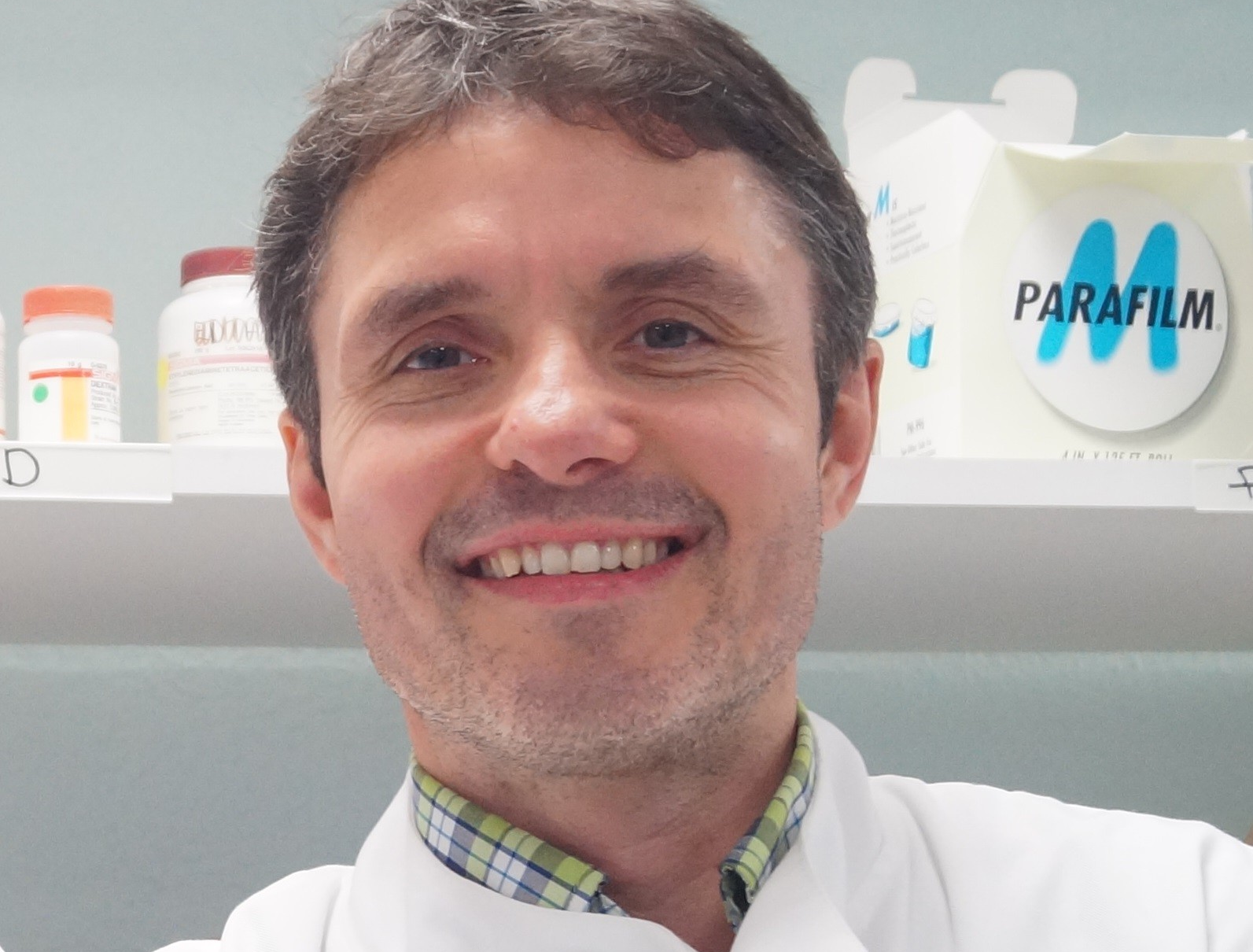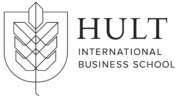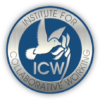Prof Mark Cragg: the driving forces behind partnerships for new cancer treatments
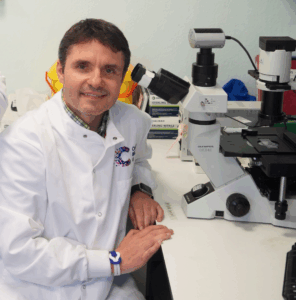
Professor Mark Cragg, alongside a collaborative team of academics from the Centre for Cancer Immunology at the University of Southampton, shows how research-industry collaborations can take cutting edge research from the lab to the clinic.
Our case study series features inspiring researchers discussing their careers and sharing tips on how they engage beyond academia to drive change.
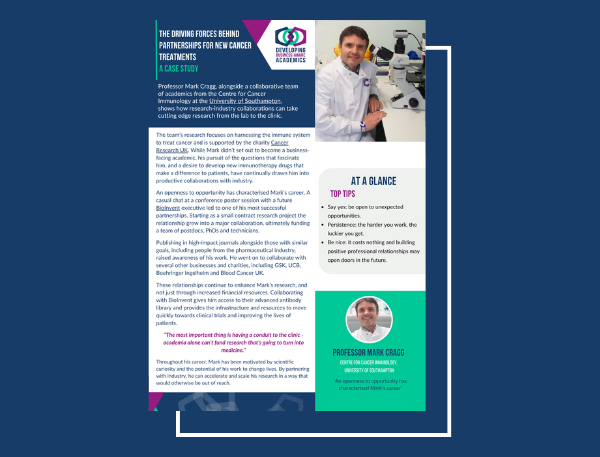
Mark's Top Tips
- Say yes: be open to unexpected opportunities.
- Persistence: the harder you work, the luckier you get.
- Be nice: it costs nothing and building positive professional relationships may open doors in the future.
The team’s research focuses on harnessing the immune system to treat cancer and is supported by the charity Cancer Research UK. While Mark didn’t set out to become a business-facing academic, his pursuit of the questions that fascinate him, and a desire to develop new immunotherapy drugs that make a difference to patients, have continually drawn him into productive collaborations with industry.
An openness to opportunity has characterised Mark’s career. A casual chat at a conference poster session with a future BioInvent executive led to one of his most successful partnerships. Starting as a small contract research project the relationship grew into a major collaboration, ultimately funding a team of postdocs, PhDs and technicians.
Publishing in high-impact journals alongside those with similar goals, including people from the pharmaceutical industry, raised awareness of his work. He went on to collaborate with several other businesses and charities, including GSK, UCB, Boehringer Ingelheim and Blood Cancer UK.
These relationships continue to enhance Mark’s research, and not just through increased financial resources. Collaborating with BioInvent gives him access to their advanced antibody library and provides the infrastructure and resources to move quickly towards clinical trials and improving the lives of patients.
Throughout his career, Mark has been motivated by scientific curiosity and the potential of his work to change lives. By partnering with industry, he can accelerate and scale his research in a way that would otherwise be out of reach.
